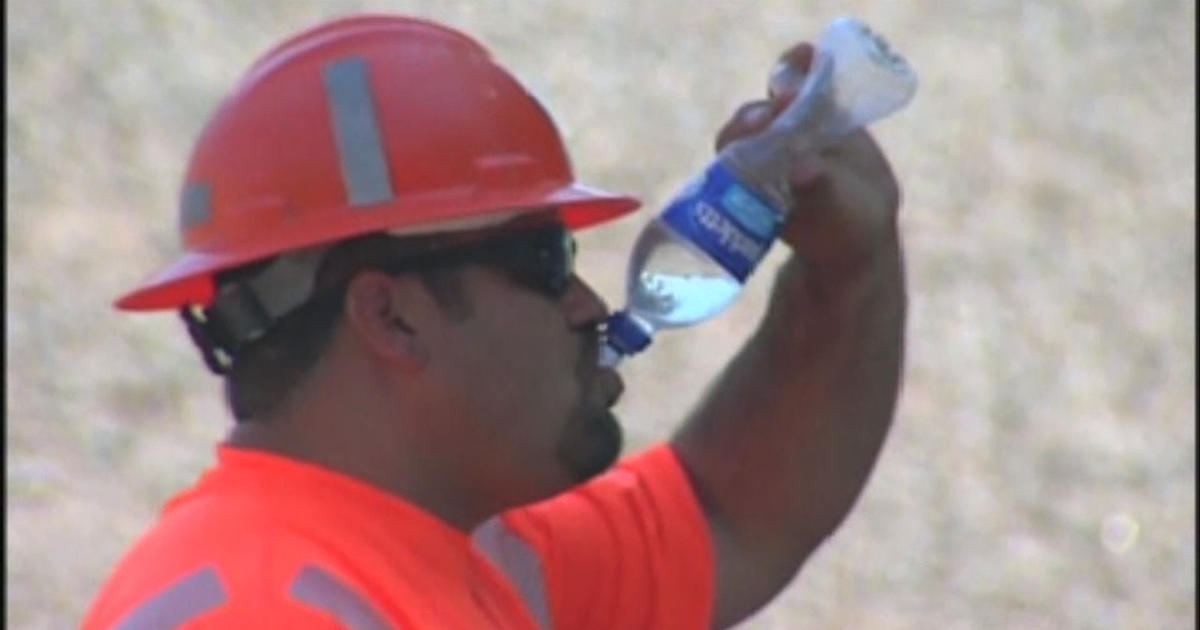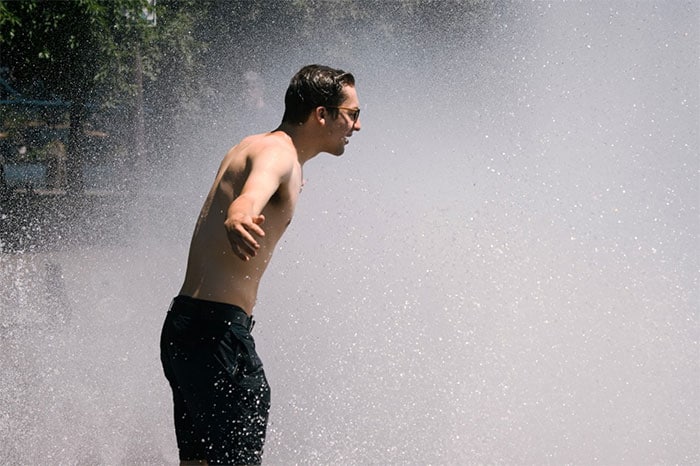Scorching heat wave bakes US as heat index soars past 100 degrees Fahrenheit

Scorching heat wave bakes US as heat index soars past 100 degrees Fahrenheit
On July 28, a large portion of the United States, including the Midwest and East Coast, experienced extreme heat conditions accompanied by high humidity, making it an extremely uncomfortable and potentially dangerous situation for tens of millions of Americans. This oppressive heat wave showed no signs of letting up and was expected to continue into the upcoming weekend.
The National Weather Service (NWS) issued excessive heat warnings and advisories for over 175 million people across the country until at least July 29 afternoon. Heat index readings, which factor in both air temperature and humidity, soared well above 100 degrees Fahrenheit (38 degrees Celsius) in many areas. These high heat index values indicate the real-feel temperature and highlight the severity of the heatwave.
Such extreme heat and humidity can pose significant health risks, especially for vulnerable populations like the elderly, children, and individuals with certain medical conditions. Heat-related illnesses, such as heat exhaustion and heatstroke, become more likely during these conditions, emphasizing the importance of staying hydrated, avoiding outdoor activities during peak heat hours, and seeking cool and air-conditioned places.
Heat waves like this one have the potential to strain power grids and increase energy demand as people rely on cooling systems to escape the scorching temperatures. Additionally, they can impact agriculture, water resources, and overall public infrastructure.

As the heat wave continues, authorities and local communities are closely monitoring the situation and providing necessary guidance to ensure the safety and well-being of the public. It’s essential for residents in affected areas to take precautions and follow advisories to minimize the risks associated with extreme heat.
In response to the ongoing heatwave, several major cities in the United States, including Chicago, New York, and Philadelphia, have taken measures to help residents cope with the extreme temperatures. They have opened cooling centers in public libraries and community centers, offering safe and air-conditioned spaces for those who may not have access to cooling at home or need relief from the scorching heat.

Recognizing the potential health risks associated with extreme heat, the city of Boston declared a heat emergency. Authorities are taking the situation seriously and are actively implementing measures to protect the well-being of their residents. As part of their response, street outreach teams in Boston have been deployed to provide water on their routes, helping to keep individuals hydrated and cool during this challenging period.
Extreme heat can indeed be dangerous, leading to heat-related illnesses and, in severe cases, even fatalities. Vulnerable populations, such as the elderly, young children, and individuals with certain medical conditions, are particularly at risk. Therefore, providing access to cooling centers and distributing water through street outreach teams is a crucial step in safeguarding the health of those who may be most susceptible to heat-related issues.
As the heatwave continues, it’s essential for people living in affected areas to take advantage of these cooling centers and stay informed about any heat advisories or emergency declarations issued by their local authorities. Following the recommended safety measures can help reduce the impact of extreme heat and ensure the well-being of communities during this challenging weather event.
The U.S. city officials and weather forecasters are issuing urgent warnings to the public, urging them to take precautions during the ongoing heatwave. They emphasize that the extreme heat has the potential to lead to heat-related illnesses, particularly for certain vulnerable groups, including:
1. People working or engaging in outdoor activities: Outdoor workers and individuals participating in physical activities outside are at higher risk due to prolonged exposure to the hot weather.
2. People aged 65 and older: Older adults often have reduced heat tolerance and may face difficulties in regulating their body temperature during extreme heat.
3. Children: Young children are more susceptible to heat-related illnesses because their bodies heat up more quickly than adults, and they may not be able to communicate their discomfort effectively.
4. Individuals with chronic illnesses: Those with certain medical conditions, such as heart disease or respiratory issues, may be more vulnerable to the effects of extreme heat.
To protect against heat-related health issues, the National Weather Service (NWS) recommends the following preventive measures:
1. Stay hydrated: Drink plenty of fluids, especially water, to stay well-hydrated and avoid dehydration.
2. Seek air-conditioned spaces: Stay in air-conditioned rooms or locations to escape the heat when possible.
3. Avoid sun exposure: Limit exposure to direct sunlight, particularly during the hottest hours of the day.
4. Check on relatives and neighbors: Make sure to check on elderly family members, friends, and neighbors, as they might need assistance during the heatwave.
These guidelines aim to help individuals reduce their risk of heat-related illnesses and ensure the safety and well-being of vulnerable populations. Taking these precautions can be crucial in staying healthy and safe during extreme heat events.
The city officials in Philadelphia and New York, among other places in the United States, are taking measures to address the extreme heat caused by the ongoing heatwave:
1. In Philadelphia, where the heat index is predicted to reach as high as 108 degrees Fahrenheit (42 degrees Celsius), officials have extended the operating hours of public pools and spray grounds on July 28 and 29. These facilities offer residents a safe place to cool off during the scorching temperatures.
2. In New York City, where the heat index is expected to reach 103 degrees Fahrenheit (39 degrees Celsius), officials have released a public service announcement video on social media to remind pet owners to keep their pets well-hydrated during the extreme heat. Pets are also susceptible to heat-related illnesses, and ensuring they have access to water and shade is essential for their well-being.
Officials in both cities have also emphasized the importance of being cautious during the heatwave and taking proactive steps to ensure the safety of residents:
1. New York City’s Deputy Mayor, Philip Banks, urged residents to check on their neighbors and loved ones, especially the elderly and vulnerable individuals who may need assistance during the extreme heat.
2. Electric grid operators in the country have issued hot weather alerts and advised energy companies to postpone non-essential maintenance to ensure a stable power supply during the peak heat.
The increasing frequency and intensity of severe weather events, including heatwaves, are seen as indications of global climate change driven by human activities. Experts predict that heatwaves in many parts of the world will persist through August.
The weather service reported that last month was the hottest June on record in the United States since 1850. Furthermore, it marked the 47th consecutive June and the 532nd consecutive month with temperatures above the 20th-century average.
The weather service also predicts that the hot weather across much of the United States is expected to subside by late July 29, with chances of thunderstorms and milder temperatures in the following week. However, it’s crucial for individuals to remain vigilant and take necessary precautions until the heatwave has fully passed to ensure their safety and well-being.




